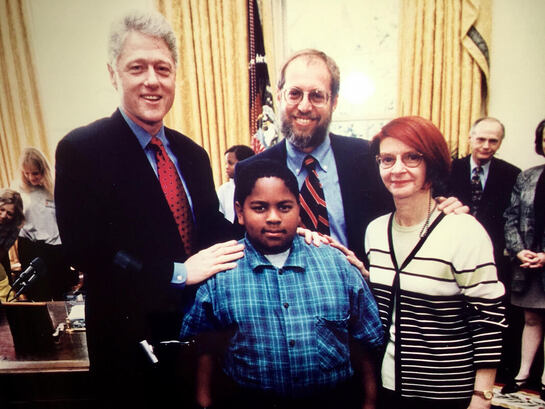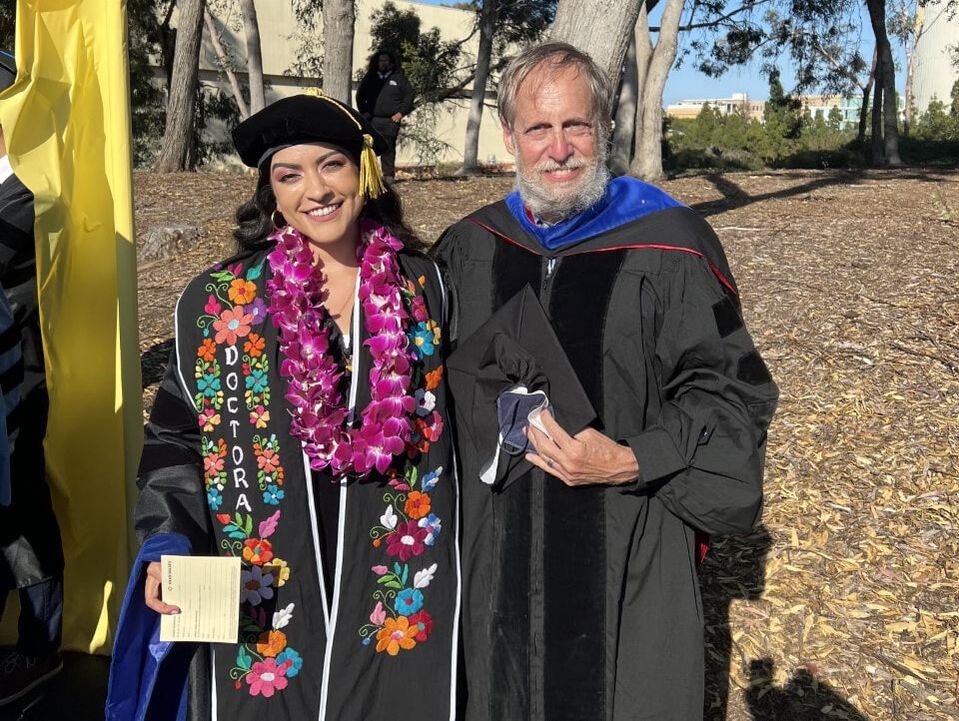George Farkas celebrated for his impactful 50-year career as an educator and social scientist
The education and sociology professor, who was one of the first to show through research that school achievement gaps emerge in early childhood and designed a one-to-one tutoring program to narrow these gaps for disadvantaged first graders, retired to “emeritus on recall” status in spring.
|
This spring, the UCI School of Education celebrated beloved professor George Farkas as he moved to emeritus status. With an academic career that spanned 50 years, including employment at four different universities, Farkas will be “emeritus on recall” to continue his research.
“George has made a major impact in understanding underrepresented students in education, cognition and behavior research, and has guided so many at UCI who are continuing to build on his work. These scholars are advancing the field of educational science. He has been a core member of the School of Education for many years, and we will all miss seeing him in the classroom,” said Frances Contreras, dean of the School of Education. Although he will not be teaching and engaging in committee work under this status, Farkas has already begun on a new study of elementary school bullying and victimization and will continue to work with the Ph.D. students he has been mentoring. The study is supported by a three-year grant from the Institute of Education Sciences and U.S. Department of Education. |
Farkas, whose tenure at UCI began in 2008, has served in several capacities at the university – including director of the School of Education’s Ph.D. program. A collaborator and supporter of others’ work, he co-authored academic studies during his time at UCI with 27 different Ph.D. students and 13 different faculty members.
In 2018, he became a distinguished professor of education and sociology, a title bestowed by the university for his research achievements. Farkas was also elected a fellow of the American Educational Research Association in 2009, and was awarded the Willard Waller career achievement award by the American Sociological Association in 2020.
In 2018, he became a distinguished professor of education and sociology, a title bestowed by the university for his research achievements. Farkas was also elected a fellow of the American Educational Research Association in 2009, and was awarded the Willard Waller career achievement award by the American Sociological Association in 2020.
|
Farkas’ life journey began in the 1960s when he was inspired by the civil rights movement as a math major at Columbia University, he said.
“Beginning in the 1990s, my research showed that kids come to school with very different preparations. If the parents are well educated, if they have money, if they are really concerned with the achievement of their children, chances are they will have started to teach their children pre-reading and pre-math skills even before the children start kindergarten. By contrast, less advantaged parents are often less likely to be able to do this,” Farkas said. To assist these children, Farkas created the Reading One-to-One tutoring program, utilizing college students as tutors to improve elementary school reading skills. He implemented the program at three different universities where he was on the faculty. At UCI, the program operated in the Santa Ana school district. This program was the model for President Bill Clinton’s America Reads initiative, which is still active in more than 800 colleges and universities today. |
Over his career, Farkas authored, co-authored or co-edited four books and published more than 135 articles in peer reviewed scholarly journals. According to Google Scholar, this work has been cited by more than 19,000 other scholarly publications. His research has been supported by the Institute of Education Sciences, U.S. Department of Education and the National Science Foundation, among others.
With his twin interests always having been science and social equity, Farkas shared that he felt lucky to have a career that involved both.
With his twin interests always having been science and social equity, Farkas shared that he felt lucky to have a career that involved both.



